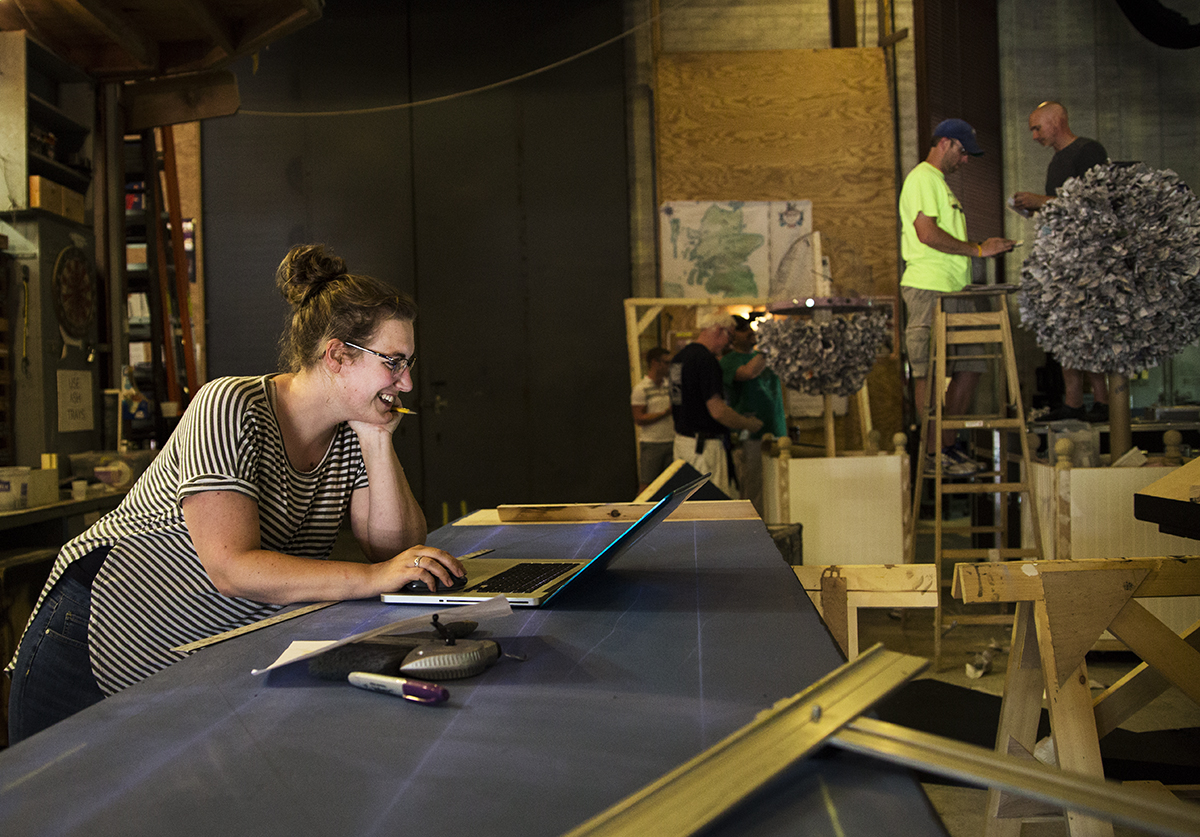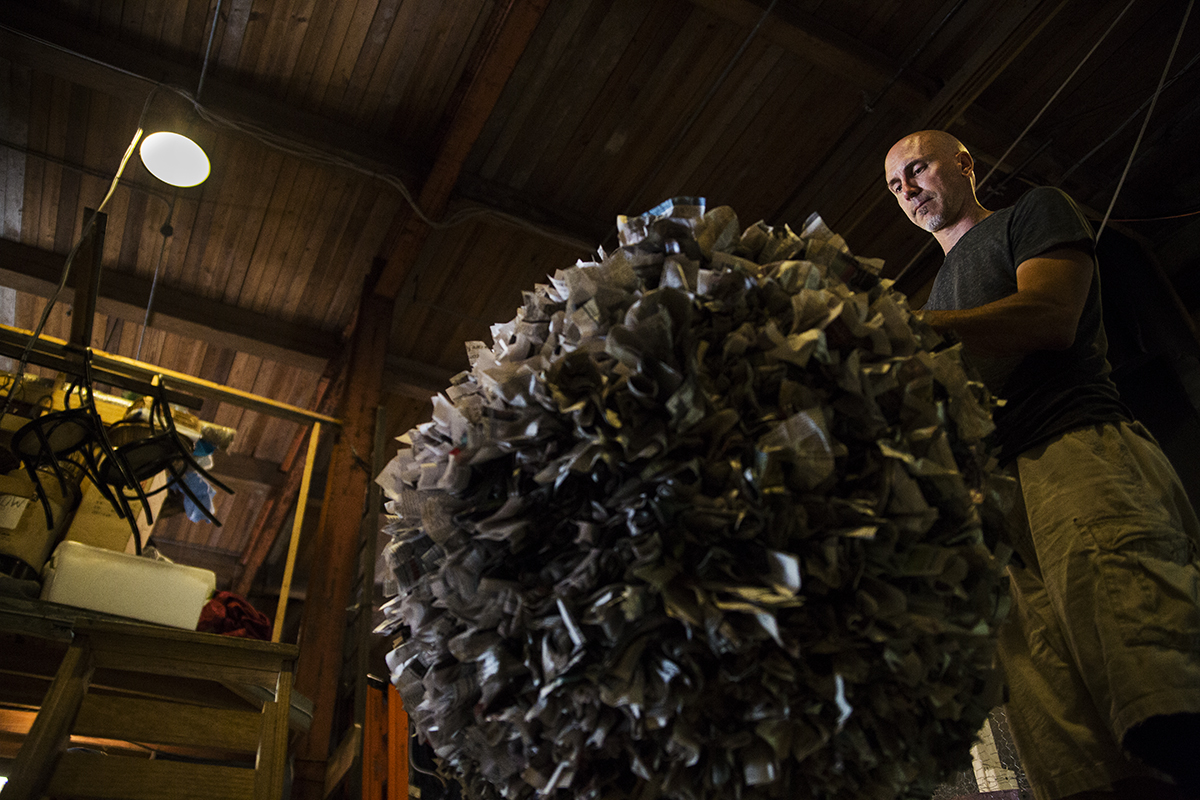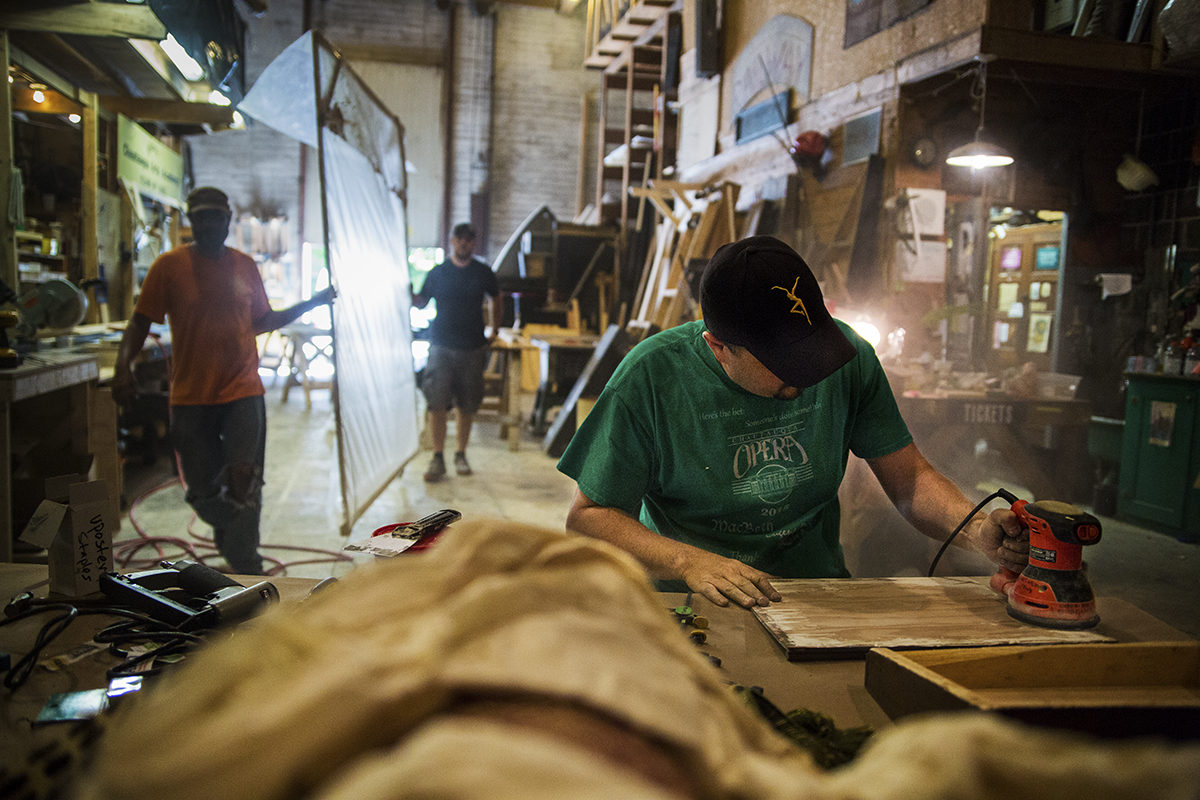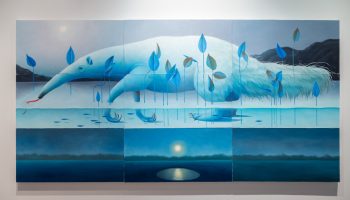The names of different departments at Lowe’s and Home Depot mean nothing to the production and stage crews of the Chautauqua Opera Company.
“We’ll walk into a Home Depot and someone from customer service will ask ‘How can we help you? Are you remodeling your home?’ ” said J.P. Woodey, Chautauqua Opera’s technical director. “Sometimes we’ll come into the plumbing department to look for a bunch of parts and pieces, but on stage (they have) nothing to do with plumbing.”
At the end of this week, community members will have back-to-back chances to see what those parts and pieces do become. At 4 p.m. Thursday on the stage of Norton Hall, Chautauqua Opera will present Philip Glass and Allen Ginsberg’s contemporary collaboration Hydrogen Jukebox. One day later, at 7:30 p.m. Friday, that stage will completely change as Chautauqua Opera presents Gaetano Donizetti’s 19th-century opera buffa — comic opera — Don Pasquale.
Staging one opera on one night and a different opera the next might seem like a tall order for all involved, not least being the production crews. Everything from set designs and lighting to costumes and props must be created and managed for two shows simultaneously.

According to Woodey, though, the team he works with is made up of professionals who are used to the “almost controlled chaos” of working on staging multiple shows at once.
“It’s just a matter of keeping all the ducks in a row,” Woodey said. “Every once and a while, because it’s theater and it’s live, there’s going to be some change. It’s a matter of how to work with the change.”
This change doesn’t just refer to the potential on-the-fly adjustments that must be made. It also refers to the literal change from one production’s set to the other’s. In a venue like Norton Hall, with an established footprint — the space in which staging can occur — and only so much room, part of the challenge becomes figuring out where to store one set while replacing the footprint it once occupied with the other.
Figuring out where things can be kept is always an issue, said Caleb Wertenbaker, the set designer for both Hydrogen Jukebox and Don Pasquale. For these productions, he tackled the issue by creating scenery for Don Pasquale that, during the staging of Hydrogen Jukebox, could be stored in the air above the stage.
“I had to conceive of a full set of flown goods, soft scenery, that could fly away and fit in the budget,” Wertenbaker said. “We landed on using industrial materials.”
Industrial tarps and plastics became a mainstay in Wertenbaker’s designs, despite the inherent difficulties. Plastic is stiff. Tarps don’t move like more commonly used theater fabrics, such as velour.
“Everyone around here knows that if you use velour, it’s going to hang and swag this way and drape that way,” Woodey said. “Tarp doesn’t because it’s a lot stiffer. It doesn’t have that fluidity to it.”
With everything taken into account — from budget to change-over to the vision of the operas’ directors — Wertenbaker said it was the right call.
“I think it’s going to look great,” he said. “I think it’s a good solution even though it’s not the easiest.”

It’s taken some time, but Woodey agrees.
“We’ve got it (the tarps) pretty darn close to what we need it to do,” he said. “By the time we get into … the performance, it should be all good.”
Materials and storage become all the more important when the two operas being staged are as different as Hydrogen Jukebox and Don Pasquale.
Hydrogen Jukebox has been called “illusory” and “surreal,” while Don Pasquale, which premiered in 1843, is a mainstay of the comic opera repertoire.
Wertenbaker said he approached Hydrogen Jukebox with the mindset of creating an environment more than a stage set, of creating a way of thinking about Norton Hall. It’s a “stripped down” opera, he said, which allows for a production that presents both stage and auditorium in a way to which audiences may not be accustomed.
This was the topic of a conversation Wertenbaker had last summer with Steve Osgood, Chautauqua Opera’s general and artistic director.
“He asked if there could be something that affected not just the audience’s experience of what’s on stage, but of the auditorium as a whole,” Wertenbaker said. “Both pieces are different, but so is the experience of going to see them.”





